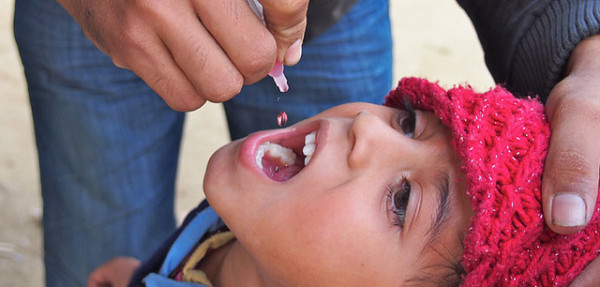Are the vaccinations up to date? Know a fussy child who needs to be vaccinated, but hates needles? What if vaccinations were as easy as sucking on a lollipop? A new pill-sized device called the MucoJet could be the answer.
Image Source: Joe Raedle
A group of researchers from UC Berkeley and the Keck Graduate Institute have been developing an oral delivery system device with the hopes of improving noninvasive drug delivery. The device utilizes a chemical reaction that generates carbon dioxide gas that forces a stream of vaccine out of the nozzle, like the reaction from the classic volcano science experiment. This high-pressure stream is able to penetrate mucus layers, delivering the vaccine into the cheek, which is rich with immune cells. Immune cells are especially important for developing mucosal immunity, which fights against cold viruses, food poisoning, tuberculosis, and sexually transmitted diseases at mucosal surfaces where the majority of infections are initiated.
The study, published in Science, demonstrated that using this device in rabbits and pigs resulted in increased delivery of immune stimulating proteins compared to traditional oral droppers, which deliver drops of vaccines directly into the mouth. In addition, animals treated with the device were found to have significantly higher amounts of antibodies in the blood, which are made by the immune system after vaccination and provide immunity against the agent being vaccinated against.
The group is experimenting with different variations of the device with hopes of increasing efficacy, patient compliance, and ease of use. For vaccinating children, investigator Kiana Aran proposed putting the small device in a lollipop. A child would be able to suck on the lollipop while the vaccine is administered. The group is also interested in potential applications of this device for insulin delivery for diabetics.
This type of technology is just one of many efforts in the scientific community to improve noninvasive drug delivery and revolutionize global health. Additionally, administering the device requires little skill and training, increasing the accessibility of vaccinations in rural areas and Third World countries. While the MucoJet has years to go before it will be available commercially, the research group has demonstrated how much potential it has and that it is a step in the right direction towards improving global health.
Feature Image Source: 4-22-12 by CDC Global










